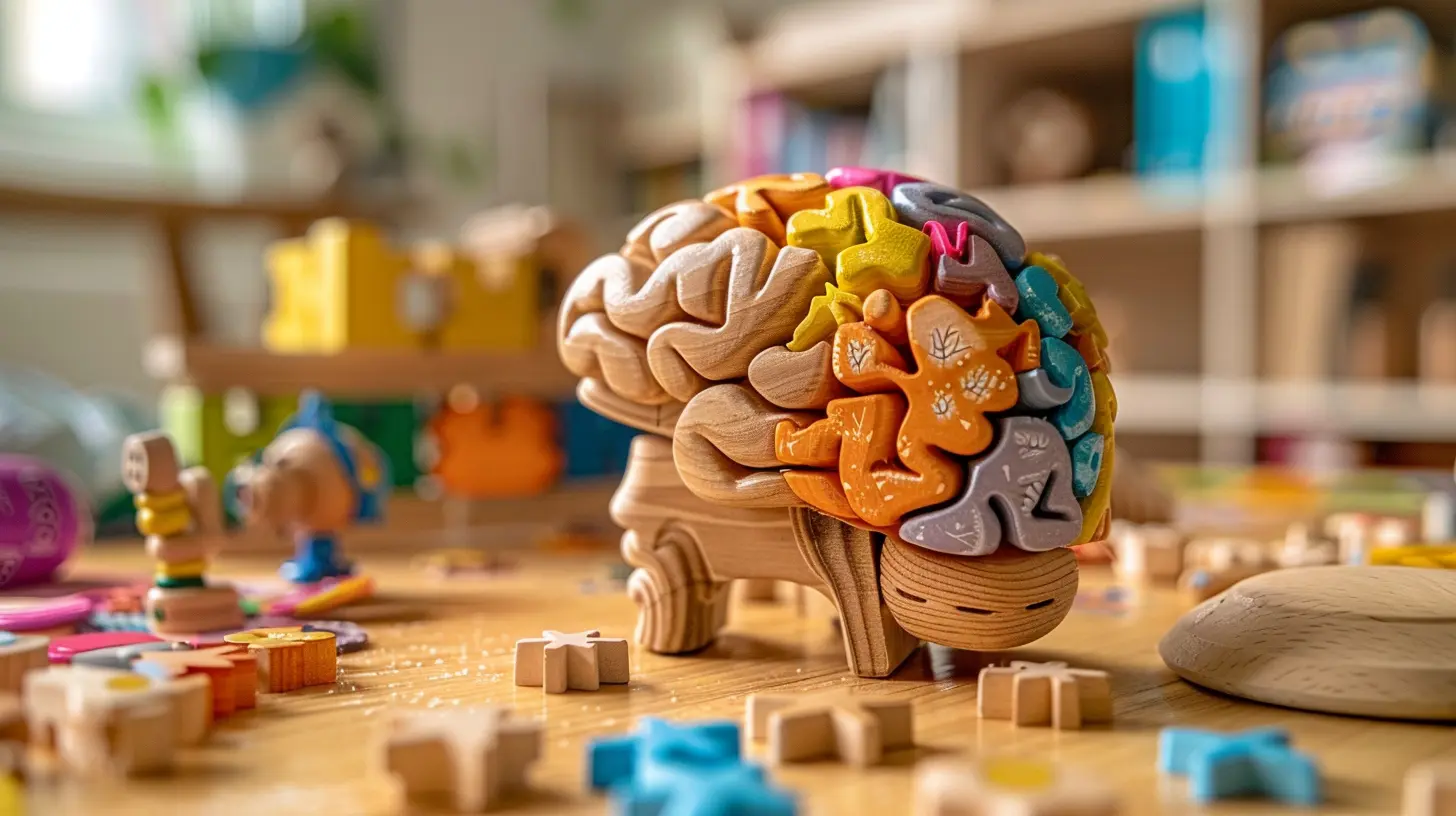Enhancing Cognitive Skills Through Educational Games
1 July 2025
Let’s be honest—most of us have been told at some point that playing games is a waste of time. But what if I told you that games—especially educational ones—can actually make us smarter? Yep, you read that right. Educational games are not only fun and engaging, but they also act like mental workouts that help strengthen our brains. Whether you're a parent looking to boost your child’s brainpower or just someone keen on keeping your mind sharp, educational games offer a powerful and surprisingly enjoyable way to enhance cognitive skills.
In this article, we’re diving deep into how educational games impact the brain, what cognitive skills they can improve, and why they’re much more than just digital distractions. So, grab your controller (or mouse), and let’s start leveling up your brain!
What Exactly Are Cognitive Skills?
Alright, before we start geeking out about games, let's get clear on what we mean by “cognitive skills.”Cognitive skills are the core set of abilities your brain uses to think, learn, remember, and pay attention. They include things like:
- Attention (staying focused on tasks)
- Memory (both short-term and long-term)
- Logic and reasoning (solving problems)
- Processing speed (how fast you absorb information)
- Language skills (understanding and using language)
Think of cognitive skills as the gears inside your brain’s engine. The sharper they are, the better your brain functions in everyday life. And here's where educational games come in—they help oil those gears.
Educational Games: More Than Just Playtime
Sure, games are fun. But educational games are intentionally designed with learning objectives. They blend elements of traditional gameplay—like rewards, levels, and challenges—with tasks that stimulate different parts of the brain.But don’t confuse these with your typical shooter or racing games. Educational games are created with the goal of developing cognitive functions, often grounded in psychological and pedagogical research.
We're talking about games that:
- Boost problem-solving abilities (like Sudoku or logic puzzles)
- Strengthen memory (think of games like “Memory Match” or “Lumosity”)
- Improve language and vocabulary (Scrabble anyone?)
- Encourage multitasking and divided attention (like managing resources in strategy games)
The beauty is that all this brain-boosting happens while you're having fun. It's like hiding broccoli in mac and cheese—good for you but still delicious.
The Brain Behind the Game: How Educational Games Work
Let’s peek under the hood for a second. How do games actually change the way our brain works?1. Neuroplasticity Is the Secret Sauce
Our brains are remarkably adaptable, thanks to something called neuroplasticity. Essentially, this means your brain can reorganize itself by forming new neural connections, especially when learning new things.Educational games tap into this by continuously challenging the brain, forcing it to adapt and learn. Whether it’s remembering a sequence, analyzing a puzzle, or figuring out strategy, your brain is being pushed to grow.
2. Immediate Feedback Enhances Learning
One of the biggest advantages of games is instant feedback. Make a mistake? You immediately know and can try again. This trial-and-error process reinforces learning far better than memorizing information from a textbook.3. Reward Systems Keep the Brain Engaged
Games often use points, levels, badges, and leaderboards to reward players. This taps into the brain’s dopamine system—giving you a little hit of satisfaction that keeps you motivated. The best part? You're getting smarter while chasing those “wins.”
The Science-Backed Benefits of Educational Games
Still skeptical? There’s plenty of research to back up the power of cognitive training through games.Improved Memory and Attention
Studies have shown that children and adults who regularly play brain-training games demonstrate better attention spans and enhanced working memory. Games that require players to track multiple elements or switch between tasks help sharpen these crucial skills.Better Problem Solving and Critical Thinking
Many educational games are essentially puzzles in disguise. They require reasoning, pattern recognition, and hypothesis testing—skills that are vital in both school and real-life situations.Enhanced Linguistic Abilities
Word games like crosswords or vocabulary-building apps engage language-processing areas of the brain. These can be extraordinarily helpful in expanding vocabulary or even mastering new languages.Sharper Visual-Spatial Skills
From navigating mazes to assembling shapes or rotating objects, educational games often improve spatial awareness. This is especially beneficial in fields like engineering, architecture, and even everyday problem-solving.Let’s Talk Types: Variety is Key
Just like working out different muscle groups at the gym, your brain benefits from a variety of game types. Here’s a quick breakdown:1. Logic and Puzzle Games
- Examples: Sudoku, Tetris, nonograms- Benefits: Enhances reasoning, planning, and pattern recognition
2. Memory Games
- Examples: Memory match, sequence-based games- Benefits: Boosts short-term and working memory
3. Language and Word Games
- Examples: Scrabble, Wordle, crosswords- Benefits: Improves linguistic processing and vocabulary
4. Math and Number Games
- Examples: Math Blaster, Prodigy- Benefits: Strengthens arithmetic skills, logical reasoning
5. Strategy and Simulation Games
- Examples: SimCity, Civilization, Minecraft (in educational mode)- Benefits: Enhances decision-making, planning, and multitasking
6. Attention and Focus Games
- Examples: Lumosity, CogniFit- Benefits: Improves concentration and task-switching abilities
Educational Games in the Classroom and Beyond
Teachers and parents are starting to catch on to the power of gamified learning. Classrooms today are filled with tablets and interactive whiteboards featuring educational games to reinforce lessons. Why? Because they capture students' attention far more effectively than traditional methods.Even outside the classroom, tools like Kahoot! are being used to create fun quizzes that make studying less painful. Students are more engaged, educators see better results, and let’s not lie—it’s nice to have a good time while learning.
But Wait… Is There Such Thing as “Too Much Gaming”?
Yes, and here’s where balance is key.While educational games are beneficial, overdoing screen time can lead to issues like eye strain, reduced physical activity, and sleep problems—especially among kids. So, consider setting time limits and mixing in offline activities like board games or card games that also challenge the brain.
Also, not all games labeled as “educational” are equal. Some are more about entertainment than enrichment, so it’s worth doing your homework before downloading a new app or game.
Tips for Choosing the Right Educational Game
Choosing the right game isn’t rocket science, but a few smart tips can make sure you’re getting the most brain-boosting bang for your buck:1. Know Your Goals – Want to improve memory? Language? Math? Pick games that target those skills.
2. Check Reviews and Ratings – Look for feedback from educators and cognitive scientists.
3. Look for Customization – Games that adapt to your skill level keep things challenging but not frustrating.
4. Track Progress – The best games let you see improvement over time.
5. Limit Ads and In-App Purchases – These can be distracting and reduce learning time.
Game On: Real-Life Examples of Popular Educational Games
Let’s shout out a few well-loved educational games that have made a real difference in cognitive development:🎮 Lumosity
A go-to for personalized brain training. Including games targeting memory, attention, and problem-solving, it’s based on neuroscience and adjusts difficulty based on performance.🧠 Elevate
Focuses on communication, reading comprehension, and analytical thinking. It feels more like a language and reasoning gym than a game—but in a good way.🧩 Osmo
A favorite for kids that blends physical play with digital learning. Perfect for tactile learners.🧮 Prodigy Math Game
A hit with elementary students, Prodigy makes math feel like an adventure game. Teachers love it, and so do kids.Final Thoughts: Leveling Up Your Mind, One Game at a Time
Educational games aren’t just a trend—they’re a low-key revolution in how we think about learning and brain development. They offer an exciting, interactive, and surprisingly effective method of improving cognitive skills at any age.Whether you're 7 or 70, games can boost your brainpower in ways that textbooks and lectures often struggle to replicate. So next time someone wrinkles their nose at your screen time, you can confidently say, “I’m training my brain.”
Like any good training tool, the key lies in variety, quality, and balance. And honestly? There’s no better way to learn than when you’re enjoying yourself.
So go ahead—fire up that brain game and start leveling up in real life.
all images in this post were generated using AI tools
Category:
Cognitive DevelopmentAuthor:

Ember Forbes
Discussion
rate this article
2 comments
Natalia Watson
Educational games are not just child’s play; they’re brain workouts in disguise! They blend fun with function, turning learning into an engaging challenge. The cognitive skills we hone through play may just be the key to unlocking our full intellectual potential. Game on!
December 8, 2025 at 5:41 AM

Ember Forbes
Absolutely! Educational games truly transform learning into an enjoyable experience while enhancing critical cognitive skills. Game on indeed!
Runehart McAuley
This is fascinating! I'm curious about which specific cognitive skills are most effectively enhanced through educational games. Are there certain game types that consistently yield better results? Looking forward to exploring this further!
July 13, 2025 at 3:45 AM

Ember Forbes
Thank you for your interest! Research shows that educational games often enhance skills such as problem-solving, critical thinking, and memory. Puzzle games and strategy-based games tend to yield the best results in these areas. I'm excited for you to explore more!


